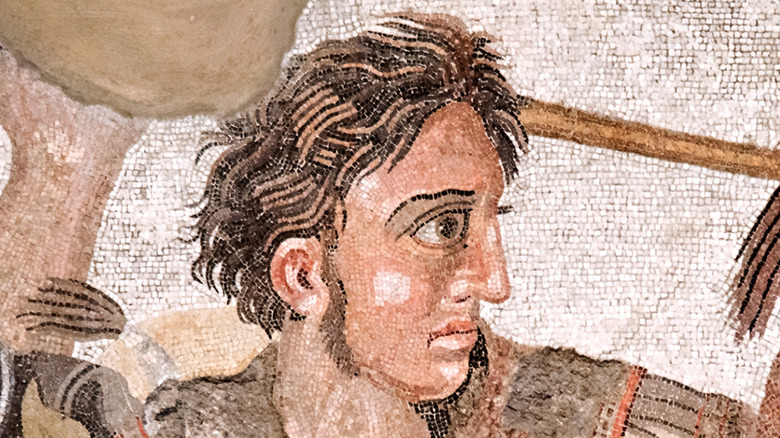What Really Happened After Alexander The Great Died?
Over 140 years after the Persian invasions of Greece, which left thousands dead and Athens terribly burned, Macedonian king Alexander crossed the Aegean Sea and invaded Persia (via World History Encyclopedia). For 10 years he and his army marched from the Anatolian coast to Persia's furthest provinces in what's now modern-day Afghanistan. His aim was complete conquest, stopping at nothing to find and capture King Darius III, even after the bulk of Persia's armies had been defeated.
While he intended to go further into India and beyond, the territory that Alexander did have constituted the largest empire the world had ever seen at the time. However, when he returned to Babylon after the failed push east, Alexander died at the age of 32. Whether it was the result of illness or an assassination is not certain, but what is known is that the following four decades became years of constant warfare, as nearly everyone tried to take a piece of the empire for themselves (via Historicaleve). In the beginning, however, there was a loose plan for how things would move forward.
Alexander's family and generals fought to the death over his empire
As Alexander never named a successor, his general Perdiccas became regent over Alexander's half-brother Philip III. With this new authority, Perdiccas divided the empire among his peers, coming across to them as a would-be king in his own right (via Britannica). Hardly any time had passed before they began their own power grabs, launching the Wars of the Diadochi (via Lumen Learning). Additionally, Alexander's battle-hardened half-sister Cynane also sought to press her own claims. She prepared to lead an army onto Babylon, where she was to force a marriage between her daughter, Eurydice II, and Philip III (Cynane's half-brother as well).
Cynane was killed by a former friend at the likely behest of Perdiccas, but her enraged army marched anyway and ensured that the marriage was fulfilled (via Turning Points of the Ancient World). Eurydice and Philip were largely figureheads as the wars continued, but after Perdiccas was killed for failing to defeat Ptolemy in Egypt, the regent-less pair were emboldened to return to Macedon and assert their control. As this required going to war with Olympias, Alexander the Great's mother, their army refused to fight and the two were soon captured and executed. The wars lasted for nearly 50 years, until 281 B.C., when Ptolemy, Antigonus, and Antiochus were the only ones left to carry on as the rulers of their respective realms (via HistoryOfWar).

